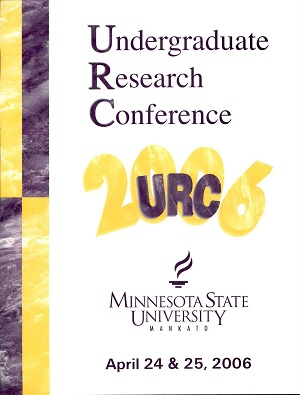Opposition to Catholic Emancipation Within Great Britain, 1820-29
Location
CSU North Ballroom
Start Date
24-4-2006 1:30 PM
End Date
24-4-2006 3:30 PM
Student's Major
History
Student's College
Social and Behavioral Sciences
Mentor's Name
Larry L. Witherell
Mentor's Department
History
Mentor's College
Social and Behavioral Sciences
Description
Catholics in England, and later Britain, were prohibited by law from doing many things since the 1550s. Beginning in the 1780s, these repressive laws were slowly stripped away by Parliament. The final laws were tackled in the 1820s, those barring Catholics from Parliament. Allowing Catholics the right to sit in Parliament was seen as dangerous to the Empire, as Catholics owed their allegiance to the Pope and not the King. Several bills were proposed to relieve the Catholics, but it was not until 1829 when they were given the right to sit in Parliament. This also repealed many restrictions placed on Catholics, leaving only a few discriminations against them in Britain. Although much has been written about the supporters of the emancipation movement, the opposition to the movement has not been fully investigated. Opposition came not only in the form of parliamentary roadblocks from both Tories and Whigs, but from the public opinion of Britain who viewed Catholic emancipation as a slippery slope of reform. Within the Government and Parliament, protest against Catholic emancipation took the form of personal comrnunication, debates, and resignations. The public responded to reform with town meetings, rallies, and formal petitions to Parliament. This paper examined those who opposed Catholic emancipation, as well as why they did so and how this opposition was expressed. This project utilized as primary sources the Parliamentary debates, the London Times, and autobiographies and memoirs of those involved with the issue. Secondary sources used include various scholarly journals and books.
Opposition to Catholic Emancipation Within Great Britain, 1820-29
CSU North Ballroom
Catholics in England, and later Britain, were prohibited by law from doing many things since the 1550s. Beginning in the 1780s, these repressive laws were slowly stripped away by Parliament. The final laws were tackled in the 1820s, those barring Catholics from Parliament. Allowing Catholics the right to sit in Parliament was seen as dangerous to the Empire, as Catholics owed their allegiance to the Pope and not the King. Several bills were proposed to relieve the Catholics, but it was not until 1829 when they were given the right to sit in Parliament. This also repealed many restrictions placed on Catholics, leaving only a few discriminations against them in Britain. Although much has been written about the supporters of the emancipation movement, the opposition to the movement has not been fully investigated. Opposition came not only in the form of parliamentary roadblocks from both Tories and Whigs, but from the public opinion of Britain who viewed Catholic emancipation as a slippery slope of reform. Within the Government and Parliament, protest against Catholic emancipation took the form of personal comrnunication, debates, and resignations. The public responded to reform with town meetings, rallies, and formal petitions to Parliament. This paper examined those who opposed Catholic emancipation, as well as why they did so and how this opposition was expressed. This project utilized as primary sources the Parliamentary debates, the London Times, and autobiographies and memoirs of those involved with the issue. Secondary sources used include various scholarly journals and books.
Recommended Citation
Lawrence, Daryl R.. "Opposition to Catholic Emancipation Within Great Britain, 1820-29." Undergraduate Research Symposium, Mankato, MN, April 24, 2006.
https://cornerstone.lib.mnsu.edu/urs/2006/poster-session-C/6




